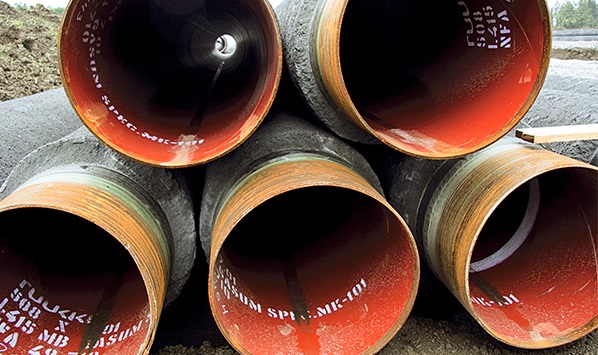Russia’s invasion, energy crisis hamper state-run companies
Published : 14 Apr 2023, 02:25
Updated : 14 Apr 2023, 02:28
Russia’s war of aggression in Ukraine and the energy crisis that characterised the whole year affected the operations of state-owned companies and ownership steering in many ways in 2022, said a government press release on Thursday.
“As a whole, state-owned companies managed to navigate through the turbulent situation reasonably well. The exceptional operating environment required action on the part of the State as an owner, especially in the case of energy, transport and logistics companies. Despite the crises and exceptional circumstances, we continued our long-term work to advance sustainability in companies,” said Kimmo Viertola, Director General of the Ownership Steering Department at the Prime Minister’s Office.
At the end of 2022, the total value of all state holdings stood at EUR 41 (47) billion. The most significant single reason for the change in value was that the combined market value of state-owned Fortum shares decreased by around EUR 5 billion in 2022.
Fortum’s German subsidiary Uniper plunged into a crisis when Russia restricted its gas exports to Germany.
When the market prices of electricity derivatives rose exceptionally in the summer, the State arranged fund in bridge funding for Fortum through the special assignment company Solidium. The goal of the arrangement was to mitigate the difficult situation in the Nordic electricity derivatives market and to secure Finland’s energy supply. In December, Fortum and the German State agreed on the final terms of Uniper’s stabilisation package and Fortum concluded the sale of its Uniper shareholdings.
At the end of 2022, the value of direct state holdings in listed companies was EUR 22.4 billion, while the value of shareholdings in Solidium totalled EUR 7.9 billion.
According to the valuation of ownership steering, the total value of unlisted corporate holdings was EUR 10.4.
The EU sanctions imposed on Russia as a result of its military actions and Russia’s counter-sanctions were also reflected in the operations of state-owned transport and logistics companies.
VR decided to cease its traffic to the East, and Finnair faced difficulties in implementing its Asia-focused strategy: Due to the closure of Russian airspace, Finnair’s flights to Asia are now required to use alternative routes, which increases flight time and costs.
Russia’s war of aggression and the energy crisis have also had a significant impact on Gasum’s operating environment. The Russian gas company Gazprom Export suspended its supplies of natural gas to Gasum in May.
In 2022, the State received a total of EUR 1.4 (2.1) billion in property income from its shareholdings.
For listed state-owned companies, 2022 was a challenging year in terms of revenue development, especially due to the effects of Russia’s war of aggression and market developments in general.
The return on all of the State’s listed holdings was minus 14.5 (2.9) per cent. Solidium’s portfolio yielded minus 9.0 (33.4) per cent, while the State’s direct ownership portfolio yielded minus 16.2 (minus 4.6) per cent, having been weighed down by Fortum’s weak development.
In the year under review, the gross index of the Nasdaq OMX Helsinki Stock Exchange fell by 12 per cent. The average annual return on all of the State’s listed holdings over the past 5 years was 11.7 per cent.
At the end of 2022, the State had holdings in 69 companies. The total turnover of all state-owned and Solidium-owned companies in 2022 was approximately EUR 144 (221) billion, and the companies employed a total of 299,000 (307,000) persons.
As an owner, the State has several expectations for its companies regarding sustainability and regularly monitors the total emissions of its corporate portfolio, for example.
In 2022, 73 (62) per cent of state-owned companies reported their emissions. The carbon footprint of these companies in 2022 was 48 (126) million tonnes CO2e calculated based on State ownership. The change can be explained by the fact that the emissions of Fortum’s former subsidiary Uniper were no longer included in the calculations for 2022.
“The State is also interested in the kinds of roadmaps companies have in place for achieving carbon neutrality, as targets must be accompanied by proper action plans. EU regulation also places pressure on companies to be more sustainable. In the future, more attention will also be paid to preserving biodiversity,” said Ministerial Adviser Katariina Sillander, who is responsible for developing sustainability in ownership steering.


